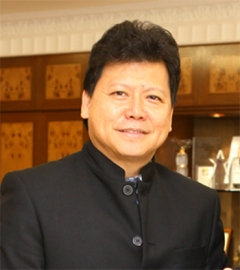

In writing the book, Lessons of Success I interviewed many successful people and I noted they all have the qualities of grit and resilience which are critical for facing challenging times. However, the key ingredient to staying afloat in a VUCA (Volatile, Uncertain, Complex and Ambiguous) environment is self-discipline.
Self- discipline is the ability to get oneself to take action irrespective of one’s emotional state. Self- discipline is very important because our success and happiness is determined by the amount of self-discipline we have. There is no substitute for self-discipline. Intelligence, knowledge and skills are not enough.
The good news is that self-discipline can be developed. It is like a muscle, the more one trains it, the stronger it becomes.
SET A GOAL
In a 1979 study conducted in a Harvard MBA program, it was found that only 3% of graduate students had clearly written goals, 13% had goals but not written down and 84% did not have any goals. The results of the follow-up study ten years later on, of the same group of students were stunning. The 3% who had written goals earned on average ten times as much as the other 97% of the class combined.
To set a goal, first find out what makes you happy and gives meaning to your life. See where you are and what you want to be, one year, five years or 10 years from now. Then write down your short-term and long-term goals to enable you to achieve this by using the S.M.A.R.T. criteria. Set your goals that are specific, measurable, achievable, relevant and time-bound.
STAY FOCUSED
In this age of distraction, being disciplined must involve staying focused on what you are doing. It is all too easy to want to read a whatsapp, an email or a facebook notification as soon as it comes in. Staying focused is about self-control from distractions and putting complete attention on what you are doing. The best way to avoid temptation is to remove its source – your handphone, ipad, ipod or any other distractions. The secret of success lies in the code word, “F.O.C.U.S” which when decoded means: Focus On Course Until Successful. To focus is to concentrate on one thing until the goal is accomplished. Just like focusing the sun’s energy through a magnifying glass on a paper can start a fire; focusing on one thing intently and with intensity can fire up one’s performance and achievement.
VISUALISE SUCCESS
Successful people know the importance of visualising themselves succeeding in order to achieve their goals. Having a mental picture of what success would be like and imagining how it would feel is a powerful mental discipline to motivate oneself to achieve the goal one has set. Nathan Sharansky, a computer expert while serving nine years in prison after being accused of spying for US used his time to visualise his success in playing mental chess with the then world champion Garry Kasparov. Astoundingly in 1996 he beat Kasparov. In the 1990s as a way to strengthen his belief and self-discipline, Jim Carrey wrote a cheque for $10million paid to himself. In 1994, he achieved this goal of making $10million when he landed his role in the movie, Dumb and Dumber.
CELEBRATE SUCCESS
Celebrating the “small successes” in the journey of achievement is a good way of reinforcing one’s motivation to continue to accomplish “bigger successes” to come. Celebrate what you have achieved but to prevent a sense of complacency from setting in, raise the bar a little higher, each time you clear it. If you delay your celebration until you achieve your goal, your motivation will start to decline. Don’t wait till you reach your desired destination to celebrate, celebrate each step you take towards reaching your goal. Success is indeed a journey and not a destination. As a writer, I celebrate with my family each time I have completed a chapter of a book. This has provided me the motivation and the self-discipline to write ten books to date.
DEVELOP A PASSION
There is a better way to sustain one’s discipline in whatever one does. It is not about working hard. It is about developing an interest and finding the passion in what one is doing. In fact, passion can be developed. Once we get to learn more about what we do and become better at it, we will begin to love our work more. When we love what we do, self-discipline is easier. As I have a passion to write, I wake up at 5am each day. While this requires self-discipline, I do not find this as hard to do compared to someone who does not share the same passion as me. The great American dancer, Martha Graham said it well, “Great dancers are not great because of their technique, they are great because of their passion”. And all of us can have better self-discipline in whatever we do; all that is needed is finding the passion in the work that we do.
This article was published in the Jul-Sept 2016 issue of Inspire Magazine. Download it here!

Dr Victor SL Tan is the CEO of KL Strategic Change Consulting Group. He undertakes change management consulting and training. He is also the author of 10 management books. Find out more at http://www.klscc.com.
